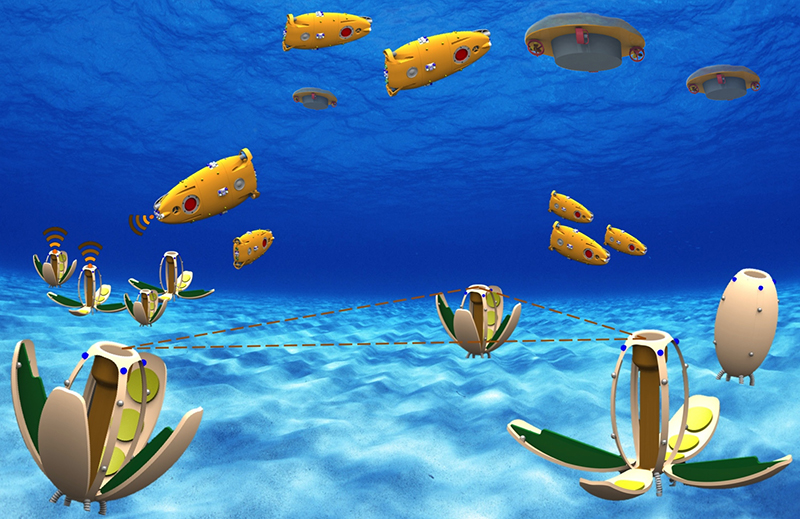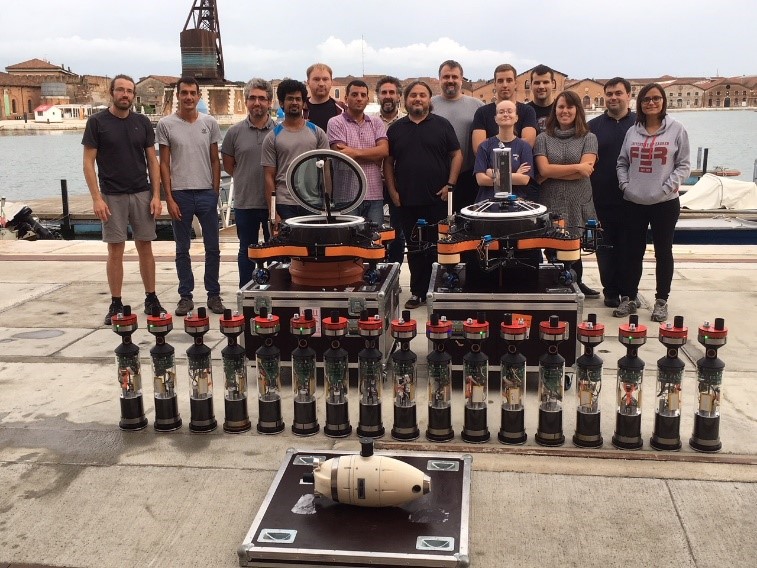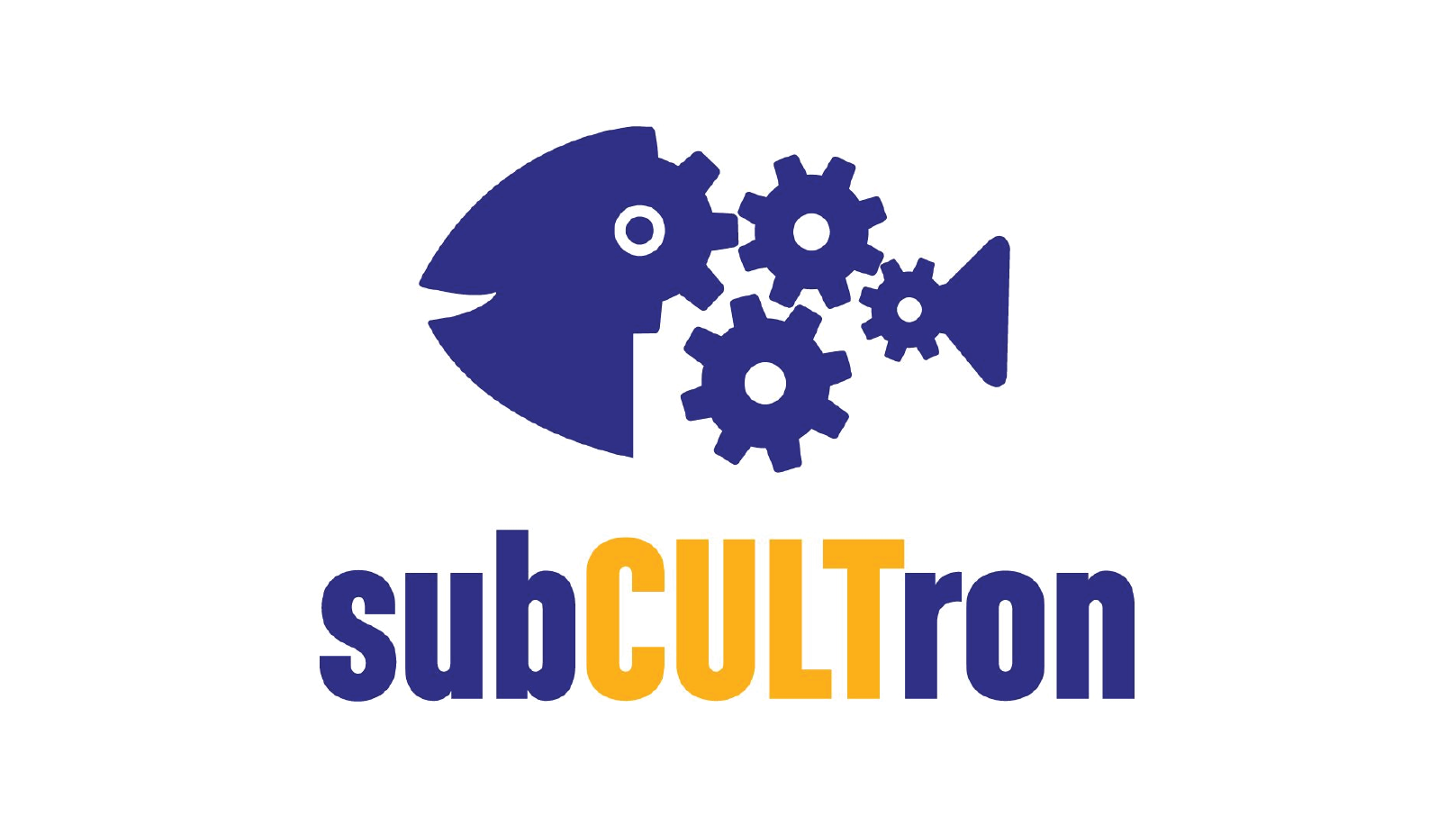 Project name: Submarine Cultures Perform Long-Term Robotic Exploration of Unconventional Environmental Niches
Project name: Submarine Cultures Perform Long-Term Robotic Exploration of Unconventional Environmental Niches
Project acronym: subCULTron
Dates: 01.04.2015 - 30.04.2019
Total budget: 3 987 651 EUR
Funding: EU Horizon 2020, FET Proactive
Grant Agreement number: 640967
website: http://zool33.uni-graz.at/artlife/subCULTron
subCULTron
subCULTron aims for achieving long-term autonomy in a learning, self-regulating, self-sustaining underwater society/culture of robots in a high-impact application area: Venice, Italy.
One of the envisioned goals of the subCULTron project is to develop an underwater multi-robot system for intelligent long-term monitoring of underwater ecosystems. The underwater system is comprised of 3 different types of robots. Artificial mussels (aMussels) are sensor hubs attached to the sea-ground, which monitor the natural habitat, including biological agents like algae, bacterial incrustation, and fish. They serve as the collective long-term memory of the system, allowing information to persist beyond the runtime of other agents, enabling the system to continue developing from previously learned states. On the water surface, artificial lily pads (aPads) interface with the human society, delivering energy and information influx from ship traffic or satellite data. Between those two layers, artificial fish (aFish) move, monitor and explore the environment and exchange information with aMussels and aPads.
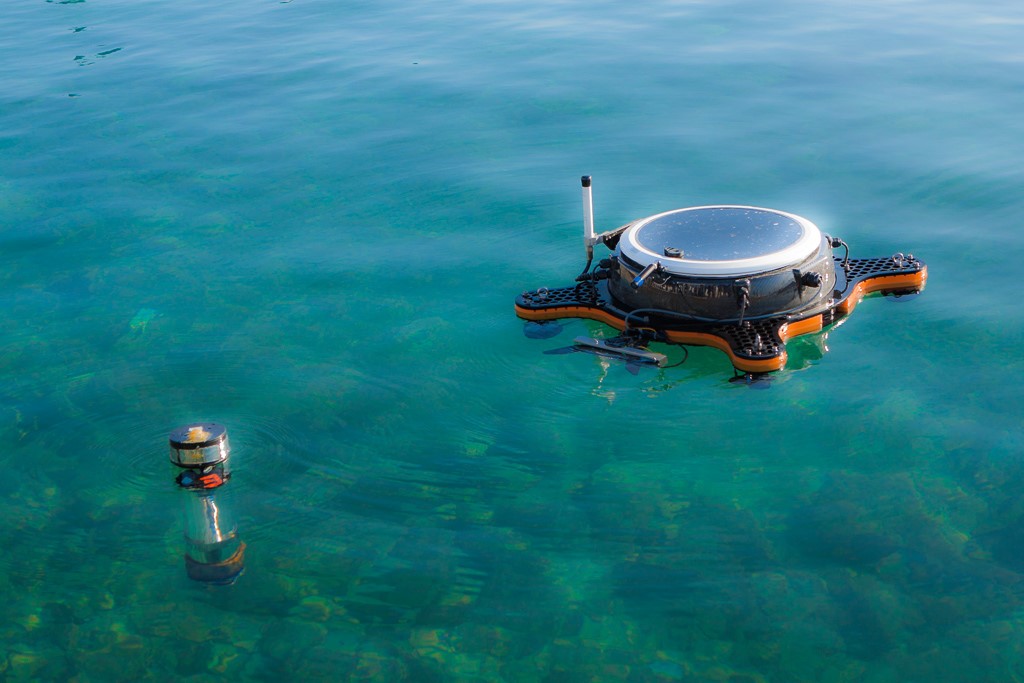
aPad
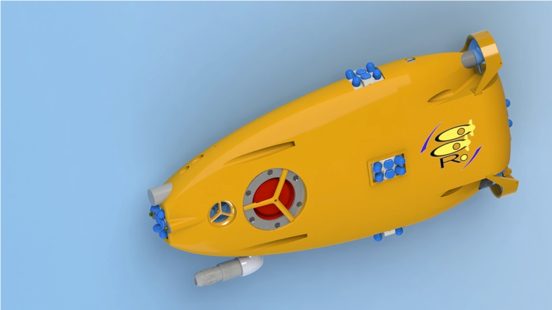
aFish
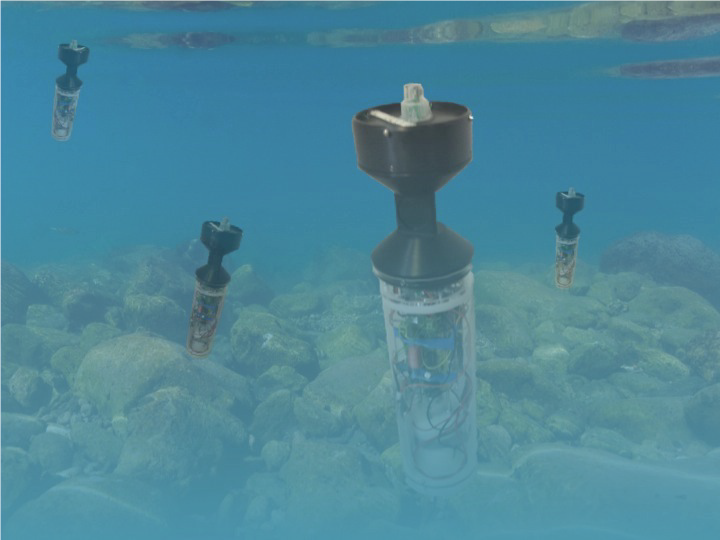
aMussel
This project is developed by:
- University of Graz – Artificial Life Lab (AT)
- Université Libre de Bruxelles (BE)
- CYBERTRONICA RESEARCH - Research Center of Advanced Robotics and Environmental Science (CH)
- ARMINES: Co-leader of Artificial systems and Bioinspired behaviours (FR)
- SSSA Scuola Superiore Sant’Anna (IT)
- UNIZG-FER University of Zagreb Faculty of Electrical Engineering and Computing (HR)
- CORILA: Consortium for coordination of research activities concerning the Venice lagoon system (IT)
On 16 APril 2019, the fourth PhD Day was held at our Faculty, where LABUST team member and third-year doctoral student Anja Babić took part in the poster section of the event and presented her PhD thesis titled "A hyper-heuristic approach to achieving long-term autonomy in a heterogeneous swarm of marine robots," along with the current results of the research done during her PhD studies. This poster was recognized and awarded as one of three particularly successful posters of the PhD Day poster section. We would like to congratulate Anja on the award and her research so far, and wish her success in her future work!
The poster and Anja's PhD research is conducted as part of the EU H2020 project subCULTron. Anja's poster can be seen on this link (in Croatian).



